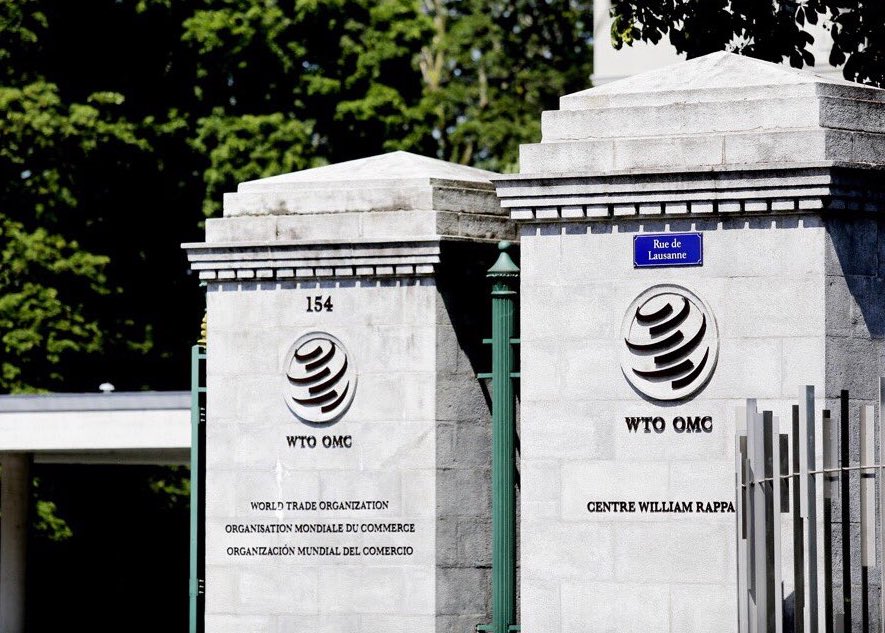
In a February 2020 meeting, the WTO Committee on Government Procurement assessed the status of negotiations by several WTO members to join the WTO Government Procurement Agreement (GPA) and Switzerland’s imminent ratification of the revised GPA. This post highlights the key developments, notes U.S. views on China's latest GPA offer in a report to Congress and considers whether Georgia’s free trade agreement (FTA) with several GPA parties provides a basis for it to complete its long-stalled GPA accession.
Following on Australia’s accession to the procurement agreement in 2019, the Committee urged the WTO members actively engaged in accession negotiations (China, Kazakhstan, the Kyrgyz Republic, North Macedonia, Tajikistan and the Russian Federation) to advance their accession efforts.
Based on China’s October 2019 market access offer, which included significant improvements, GPA parties encouraged Beijing to address their remaining concerns. In its recent report to the Congress on China's compliance with its WTO commitments, submitted on March 6, the U.S. Trade Representative recognized that China’s revised offer contained improvements in the areas of thresholds, provincial coverage, additional entities and additional services. However, it commented that the offer "continues to seek overly broad exceptions and sidesteps some of the most entrenched and vexing issues, such as with respect to the coverage of government-owned or government-controlled entities that conduct government procurement.”
Parties noted that Tajikistan’s new market access offer (its 5th revision) does not satisfactorily address concerns with a price preference program. Kazakhstan pointed out that opportunities for foreign participation in its government procurement market have been enhanced with a new government procurement portal. It hopes to submit an initial market access offer soon, following its application for accession in November 2019.
At the February meeting, the United Kingdom became an observer to the GPA. With its exit from the European Union on January 31, 2020, the UK is no longer an EU member state. It intends to accede to the GPA in its right after the transition period, provided for under the EU-UK Withdrawal Agreement, ends on December 31, 2020. During the transition period, the UK is treated as an EU member state. A year ago, the Committee approved the terms for the UK's accession to the GPA.
An ongoing concern of the GPA committee has been the lack of engagement of several WTO members that made commitments to seek GPA accession when they joined the WTO. They have either not started the accession process (Afghanistan, Mongolia, Saudi Arabia and the Seychelles) or their GPA negotiations are inactive (Albania, Georgia, Jordan and Oman). At the February meeting, several of these members reported on developments in their procurement systems:
- A new law in Afghanistan opens its government procurement markets to foreign bidders.
- Albania allows foreign bids to be submitted online; and under a new law aimed at increasing the efficiency and effectiveness of government procurement procedures, makes procurement information available online.
- Seychelles is conducting a review of its internal government procurement system with the aim of completing it in 2021.
- Georgia's Free Trade Agreement with the European Free Trade Association (EFTA), comprised of GPA parties Iceland, Liechtenstein, Norway and Switzerland, includes a government procurement chapter based on the GPA, making GPA-based obligations enforceable in the country. Georgia indicated that it will be creating in the near future an independent and centralized review body for government procurement and that all government procurement procedures can be completed electronically.
The EFTA-Georgia FTA was signed in June 2016 and entered into force on September 1, 2017 for Georgia, Iceland and Norway and May 1, 2018 for Switzerland and Liechtenstein. Georgia’s market access commitments under the Agreement generally aligns with GPA coverage: it includes coverage of central, sub-central and other entities under GPA thresholds.
Georgia does not follow standard GPA practice in its use of a positive list to specify its coverage of goods. Under the GPA, parties are expected to cover all goods, except those specifically excluded. The exception is for defense goods. Georgia also does not cover all construction services, in contrast to its EFTA partners. The FTA allows Georgia until September 2022 to align its various time periods, such as for tendering, with the GPA-based periods applied by the EFTA states. Considered in total, it would appear that Georgia should be able to reactivate and conclude its stalled GPA accession negotiations.
Switzerland has set a date for implementing the revised GPA, which entered into force in April 2014 and has been implemented by all the other parties. The Swiss Parliament has adopted the revised GPA and all implementing legislation. Switzerland plans to submit its Instrument of Acceptance to the Committee later in 2020 with the objective of entry into force for both the revised GPA and the updated federal and cantonal government procurement legislation on January 1, 2021. Once it has done so, the 1994 GPA will cease to have effect and the other parties will provide Switzerland with access to the procurement that they added in the 2014 revision.
Jean Heilman Grier
March 10, 2020
Related Posts
China's New GPA Offer: Enhances Accession Prospects
Britain's GPA Accession After Brexit
The WTO Government Procurement Agreement: A Djaghe Reference Paper
Prospects for Expansion of WTO Procurement Pact
UPDATE: This post was updated to insert material that was inadvertently omitted.
Post Permalink: https://trade.djaghe.com/wto-gpa-update-11-advancing-accessions/

